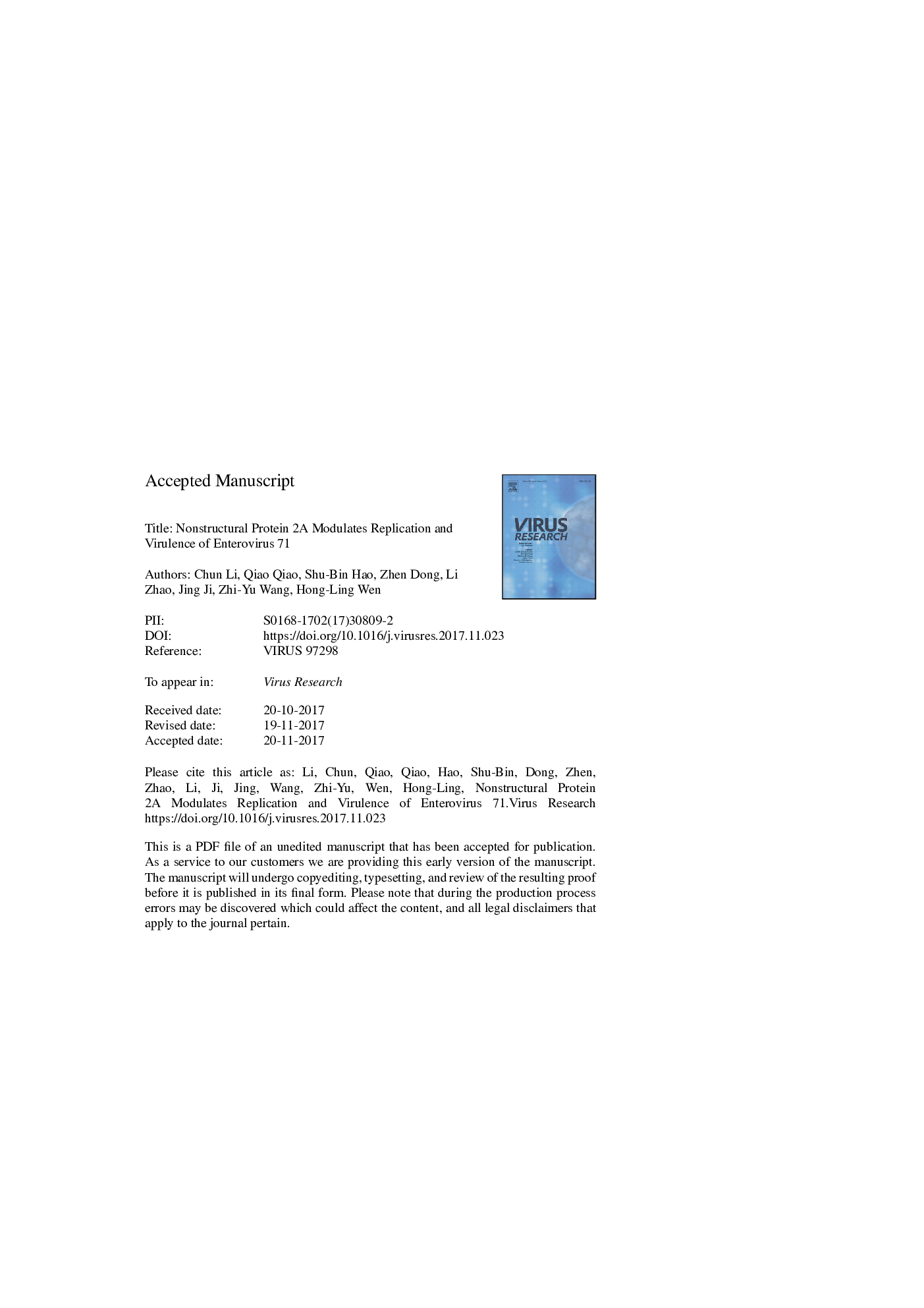| Article ID | Journal | Published Year | Pages | File Type |
|---|---|---|---|---|
| 8752028 | Virus Research | 2018 | 19 Pages |
Abstract
Enterovirus 71 (EV71) can cause hand, foot, and mouth disease in children, and severe infections can induce neurological complications and even death. However, the pathogenesis of EV71 remains unknown. The 2A proteinase (2Apro) of EV71 plays an important role in segmenting the precursor polyprotein during viral replication, inhibiting host protein synthesis, and evading innate immunity. This study was to determine the function of EV71 2Apro in replication and virulence. A chimeric strain (SDLY 107-2A-1) was recombined by replacing 2Apro of a severe strain (SDLY107) with that of a mild strain (SDLY1) based on an infectious cDNA clone. The replication kinetics of the chimeric strain in vitro and in vivo were determined by qRT-PCR, which showed that the chimeric strain replicated slower and generated less viral RNA than the severe strain. The pathological change and viral load of chimeric strain infected mice were intermediate between severe strain infected mice and mild strain infected mice. Cellular cytotoxicity assays revealed that 2Apro was associated with the neurotoxicity of EV71. Histopathological and immunohistochemical assays detected tissue pathological damage in the lungs, muscles, brain, and intestinal tissues. Together, these results suggest that 2Apro modulates replication and virulence of EV71. This provides a theoretical basis for virulence determination of EV71.
Related Topics
Life Sciences
Immunology and Microbiology
Virology
Authors
Chun Li, Qiao Qiao, Shu-Bin Hao, Zhen Dong, Li Zhao, Jing Ji, Zhi-Yu Wang, Hong-Ling Wen,
